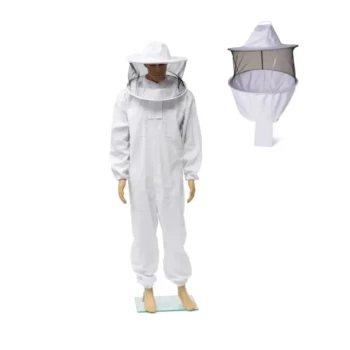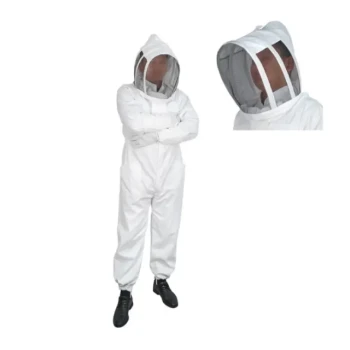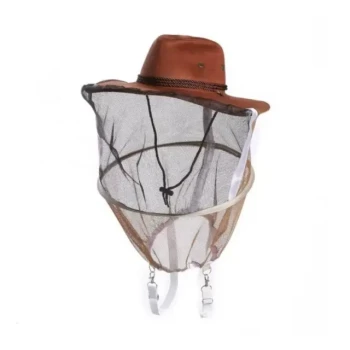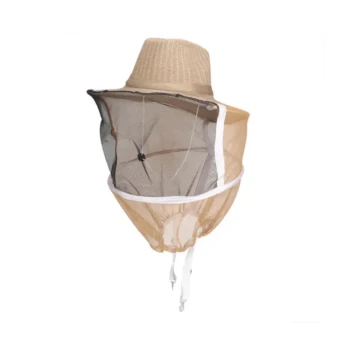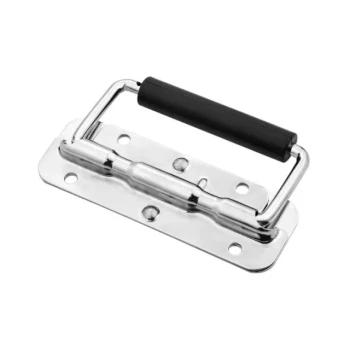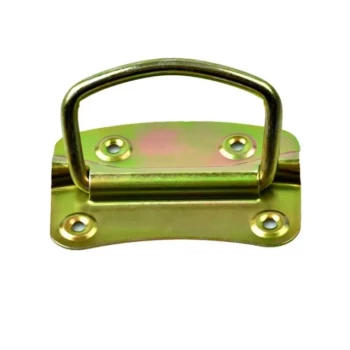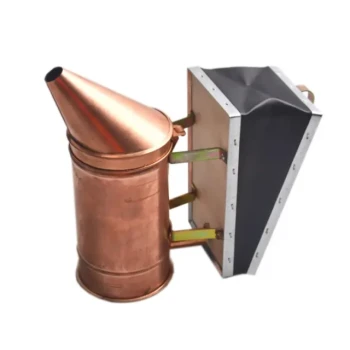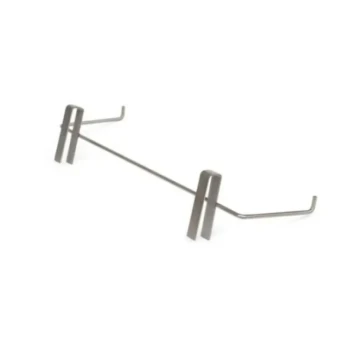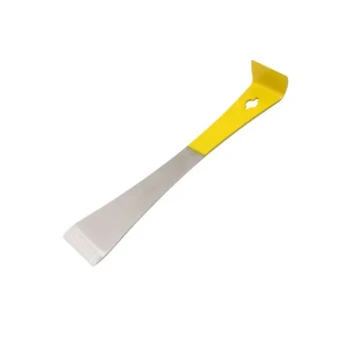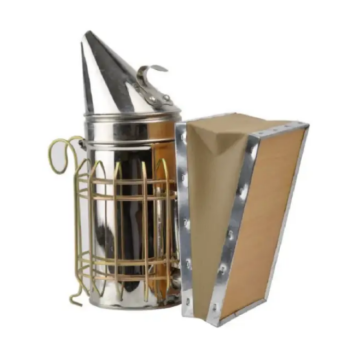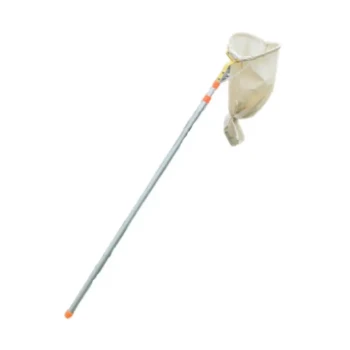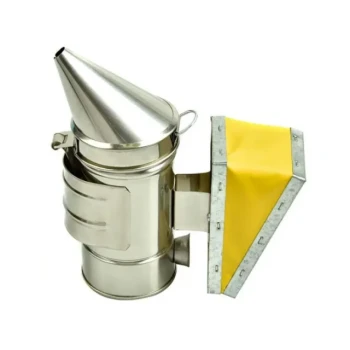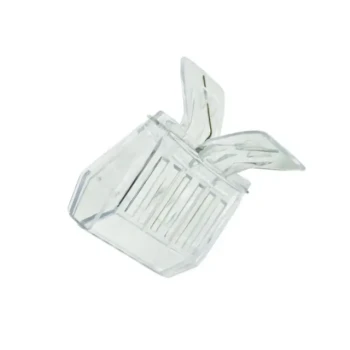As a general rule, a beekeeping suit should be washed at least once a week if used regularly. However, the ideal frequency depends entirely on how often it's used and how soiled it becomes. If your suit has received multiple stings or is visibly dirty with honey or propolis, it should be washed immediately to ensure your safety on the next inspection.
The core reason for washing your suit isn't about appearance; it's a critical safety protocol. A dirty suit retains alarm pheromones from bee stings, which can trigger defensive behavior and provoke unnecessary aggression in your hives during subsequent visits.
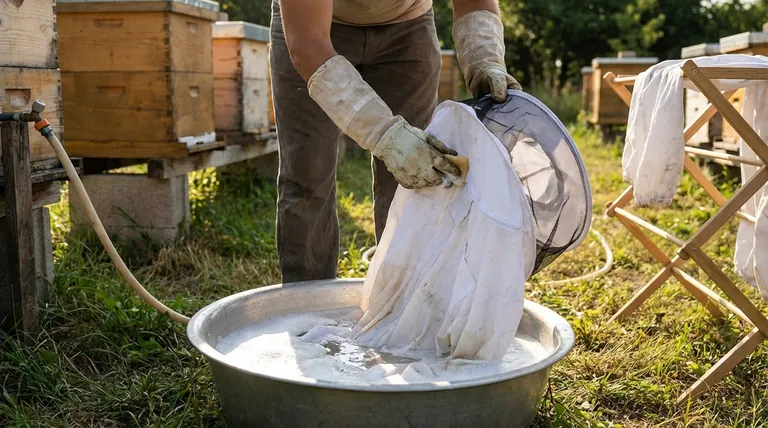
Why Regular Washing is Non-Negotiable
A clean suit is your first line of defense, not just against stings, but against agitating your bees and spreading disease. Understanding the reasons behind regular washing reinforces its importance.
Removing Dangerous Alarm Pheromones
When a bee stings, it releases an alarm pheromone. This chemical signal alerts other bees to a potential threat, marking the target—your suit—for further defensive attacks.
Failing to wash this pheromone out is like wearing a "kick me" sign into your apiary. The scent lingers and can incite aggression from otherwise calm colonies on your next visit.
Preventing Disease Transmission
Your suit can pick up pathogens, spores, and pests from one hive. Moving to another hive without cleaning your gear can create a pathway for cross-contamination.
Regular washing is a key part of good apiary biosecurity, helping to protect your colonies from the spread of diseases like American Foulbrood.
Eliminating Attractants and Contaminants
Splashes of nectar, honey, and bits of propolis can build up on your suit. While seemingly harmless, these resources can attract robber bees and other pests.
A buildup of sticky propolis can also interfere with the proper functioning of zippers and seals, compromising the suit's integrity.
The Correct Washing and Drying Procedure
Properly cleaning your suit preserves its protective qualities and extends its lifespan. Rushing this process can cause damage.
Preparation is Key
Before washing, empty all pockets and inspect the suit for any tears or holes that need mending. Most importantly, detach the veil from the suit. The delicate mesh of the veil requires separate, gentle handling.
Washing the Suit Body
Most modern bee suits are machine-washable, but always check the manufacturer's label first. Use a mild detergent and avoid bleach or fabric softeners, which can degrade the fabric and leave scents that may disturb the bees.
Hand-Washing Veils and Hats
The veil is the most fragile part of your gear. Never put it in a washing machine. Instead, hand wash the veil and any attached hat in a basin of warm, soapy water. Gently scrub and rinse thoroughly.
The Critical Step: Air-Drying
Do not use a machine dryer. The high heat can cause significant shrinkage, potentially making your suit unsafe and uncomfortable. It can also damage zippers and the fine mesh of your veil.
Always hang your suit and veil to air-dry, preferably in a shaded, well-ventilated area to prevent sun damage.
Common Pitfalls to Avoid
Mistakes in the cleaning process can be costly, potentially ruining your gear or compromising its protective function.
The Mistake of Using High Heat
Machine drying is the fastest way to shrink a cotton bee suit. A shrunken suit can leave your wrists and ankles exposed, creating dangerous gaps for bees to enter.
The Damage from Harsh Chemicals
Bleach will weaken the fabric fibers over time, leading to rips and tears. Fabric softeners leave behind chemical residues and fragrances that can be agitating to your bees.
Neglecting Minor Repairs
Washing can exacerbate small holes or failing seams. Always inspect your suit for wear and tear before you wash it and make any necessary repairs to ensure it remains bee-proof.
Making the Right Choice for Your Goal
Your washing schedule should adapt to your beekeeping intensity and specific circumstances.
- If you are a hobbyist inspecting hives once a week: Washing the suit after every one or two uses is a practical and safe routine.
- If you are a commercial beekeeper with daily hive visits: Your suit should be part of a frequent, professional laundry cycle, potentially being washed every day or two to maintain biosecurity.
- If your suit receives multiple stings or is heavily soiled: Wash it immediately, without exception, to remove alarm pheromones and prevent provoking your bees on the next inspection.
Maintaining your beekeeping suit is a direct investment in the safety and well-being of both you and your bees.
Summary Table:
| Washing Frequency Guide | Key Reason |
|---|---|
| After every 1-2 uses (Weekly for hobbyists) | Removes alarm pheromones from stings to prevent bee aggression. |
| Daily or every 2 days (Commercial beekeepers) | Maintains biosecurity and prevents cross-contamination of disease. |
| Immediately after heavy soiling or multiple stings | Eliminates attractants (honey, propolis) and dangerous pheromones. |
Ensure your apiary's safety and efficiency with professional-grade gear from HONESTBEE.
A clean, durable beekeeping suit is fundamental to protecting your investment. We supply commercial apiaries and beekeeping equipment distributors with high-quality, easy-to-maintain suits and protective equipment designed for rigorous, daily use. Our wholesale-focused operations ensure you get the reliable gear you need to maintain optimal biosecurity and colony health.
Ready to upgrade your protective equipment? Contact HONESTBEE today to discuss your wholesale needs and discover how our supplies can support your beekeeping success.
Visual Guide
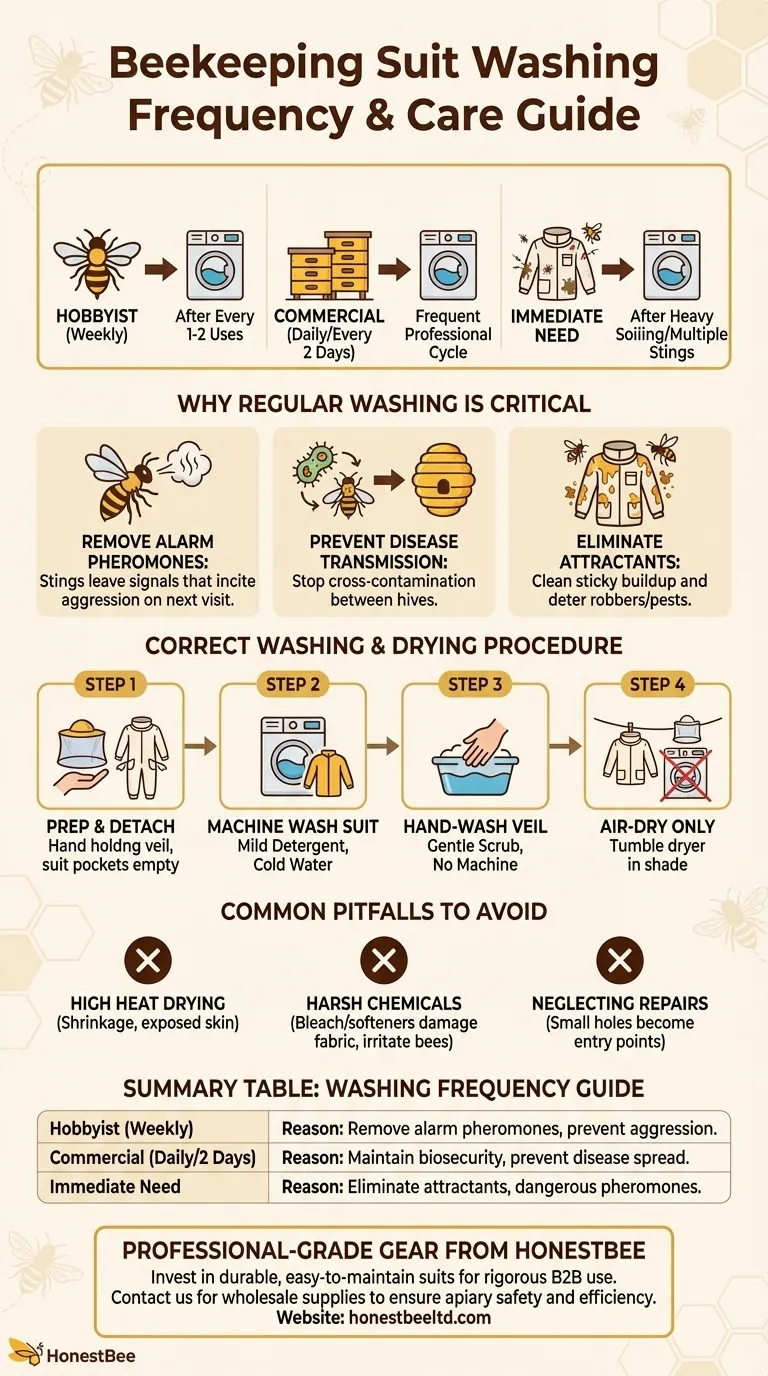
Related Products
- Professional Cotton Beekeeper Suit with Round Veil Design for Commercial Apiaries
- Premium Cotton Beekeeper Suit with Reinforced Fencing Veil
- Economy Polyester Beekeeping Jacket with Veil and Hat
- Beekeeping Jacket with Hood and Veil for Beekeepers
- Premium Cowboy Beekeeper Hat with Visibility Veil Outdoor Professional Beekeeping Protective Gear
People Also Ask
- Why do beekeepers wear suits? Essential Protection for Hive Management
- Why is professional beekeeping protective equipment considered essential hardware in defensive regions? Secure Growth
- What is the proper method for drying beekeeping suits and jackets? Expert Tips for Longevity and Safety
- What are the benefits of elasticized cuffs and ankles in beekeeping suits? Ensure Total Protection & Comfort
- Can you harvest honey without a suit? The Truth About Beekeeping Risks
- What materials are required to clean a beekeeping suit? Essential Guide to Maintaining Protective Gear
- How should a beekeeping suit be worn to ensure maximum protection? Master the Sealed System Technique
- What should be considered when selecting a beekeeping suit? Find the Perfect Balance of Protection & Comfort
